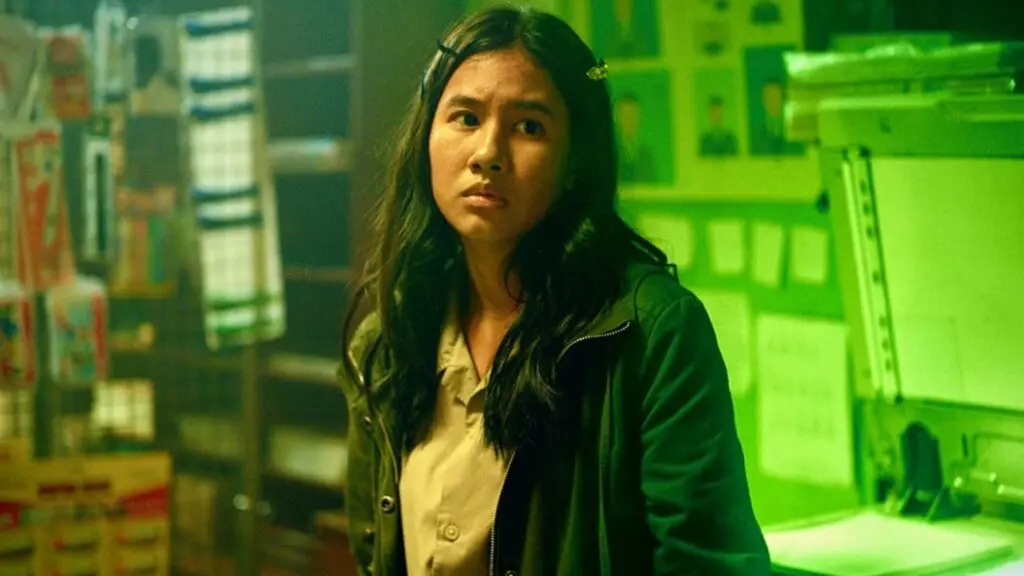The Indonesian thriller Photocopier focuses on a young college student in Jakarta named Suryani, who everyone calls “Sur” for short. She is a computer science student who is part of her school’s theatre company. Naturally, she designed the troupe’s website, which has helped them get noticed.
Unfortunately for Sur, her father thinks she should focus on her schooling. Why waste time “acting” when she should be working at their family’s deli?
Sur is a somewhat naive, even sheltered young woman. She wants to break out of her shell and have some fun, so she lies to her parents. She tells them she has an interview and goes to the party celebrating their group’s victory. She was supposed to leave by 8 p.m. but refused to go home with her friend Amin. He runs the school’s computer lab and photocopier business.
The next thing she remembers, she woke up at home. She showed up late for her scholarship review. Still, if that wasn’t bad enough, someone found pictures on her social media page. They were not flattering either. It showed her passed out from being inebriated, a taboo subject in Indonesian culture.
This got her kicked out of school and her home by her father. She now wants to summon her inner Veronica Mars to know one thing:
Who posted the photos, and what happened to her last night?
Perhaps there is nothing scarier about the truth than not knowing it. Sur struggles with this while investigating what happened by cracking into her fellow student’s computers and phones. What she finds is disturbing. Her friend, Amin, accepts payments from Rama (Giulio Parengkuan) to steal sensitive pictures as “inspiration” for students. Sur was not the only one this was happening to.
An older student, Farah, and a male student with emotional control issues, Tariq, also violated their privacy. Rama drugged them all.
While the three are gathering evidence, Rama and some thugs hire, steal, and destroy their evidence under cover of government fumigation. With nothing left and not enough evidence to bring to the police, Sur, and Farah took the photocopier from Amin’s lab and took it to the school’s rooftop.
They make hundreds of copies of the evidence and document what has happened to them. They then toss what officials would call viral propaganda into a busy student courtyard. Farah’s tattoo says, “Even in the darkest hour, I decided to keep fighting.”
This leads to the question: Did he sexually assault them? As we said above, there is nothing scarier than not knowing. We never see an assault, but great pain, embarrassment, and shame are reactions. Is their culture and, as victims of trauma often do, choose to turn a blind eye to what happened to them?
There is also the matter of Indonesia’s history and themes playing a role in Photocopier. This country has been under foreign rule for centuries, mainly European imperialism. The country’s rich recent history has been resistant to colonialism, which found itself under Dutch and Portuguese control and heavy French and English rule. Japan ruled the area from 1942 to 1945, and even Turkey controlled the islands a century before the Dutch arrived.
This country has continually fought for its independence and is not controlled. While Sur’s father represents Eastern values, his daughter represents a Western ideology, which causes conflict. All of the influence by foreign nations has caused disputes among a group of people that is more incredibly diverse in culture and religion in the first place.
Finally, the fumigation is a metaphor for government oppression and influence under cover from the “light” that keeps issues in the “dark.” Rama represents the worst of Western colonialism. Each person, coming from power or money, has to influence. Amin, for example, illustrates how leaders would be paid off by European influence. Also, each person he attacked when retrieving the evidence has a diverse background in that country. The fumigation represents a cloud of oppression. The final scenes of Sur, Farah, and Tariq protesting their mistreatment celebrate their resiliency.




